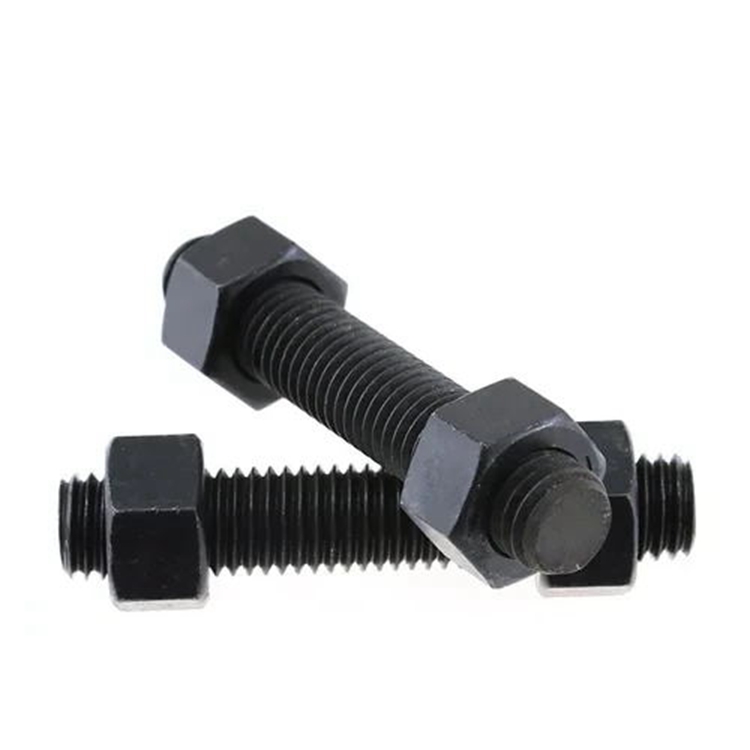Manufacturer Information for LS Flexplate Bolt Specifications and Options
Nov . 10, 2024 22:59 Back to list
Manufacturer Information for LS Flexplate Bolt Specifications and Options
Understanding LS Flexplate Bolts Choosing the Right Manufacturer
When it comes to upgrading or rebuilding a vehicle powered by an LS engine, one of the often-overlooked components is the flexplate. The flexplate serves as a crucial connection between the engine and the transmission, allowing for smooth operation despite the engine’s vibrations and movements. However, equally important are the bolts that secure the flexplate to the crankshaft, which play a significant role in ensuring safety, performance, and durability. This article delves into the intricacies of LS flexplate bolts and their manufacturers.
The Importance of Flexplate Bolts
Flexplate bolts may seem like minor pieces in the grand scheme of an engine build, but their importance cannot be overstated. These bolts must endure significant stress and torque during operation. If they were to fail or loosen, it could lead to catastrophic engine damage and an unsafe driving experience. Therefore, choosing high-quality flexplate bolts from reputable manufacturers is paramount.
Material and Design Considerations
Flexplate bolts are typically manufactured from high-strength materials like grade 8 steel or other alloys that can withstand both torque and vibrations. These materials are treated to resist corrosion and fatigue, which can be critical for longevity, especially in performance applications.
Design features, such as the bolt's head type and the presence of a serrated lock feature, also play a role in their effectiveness. Some manufacturers offer bolts with additional features that enhance the holding capacity and prevent loosening over time, thus ensuring that the flexplate remains securely attached throughout the life of the engine.
Choosing the Right Manufacturer
ls flexplate bolts manufacturer

When looking for LS flexplate bolts, it is essential to consider several factors that can differentiate one manufacturer from another
1. Reputation Researching the manufacturer’s reputation within the automotive community can provide insights into the quality of their products. Manufacturers with a long track record of supplying reliable engine components will often have positive reviews and testimonials.
2. Specifications Comparing the specifications of various bolts is essential. Make sure to look for bolts that meet or exceed OEM specifications, including dimensions, material grade, and torque ratings.
3. Performance Testing Some manufacturers take pride in their quality control processes and subject their bolts to rigorous testing. Ensuring that the bolts have been tested for durability, strength, and performance can give extra peace of mind.
4. Warranty and Support A good manufacturer will stand behind their product with warranties and customer support. Should you encounter any issues with the bolts, it’s essential to have a responsive manufacturer that can assist with replacements or technical advice.
5. Compatibility Flexplate bolts are not one-size-fits-all. Ensuring that the selected bolts are compatible with your specific LS engine setup, including the type of transmission and flexplate, is critical for successful installation.
Conclusion
In summary, while LS flexplate bolts may be small components, they play a vital role in the overall performance and reliability of an LS-powered vehicle. Choosing the right manufacturer is crucial to ensure that you are obtaining a product that meets high standards for quality and durability. By considering factors such as reputation, material quality, and customer support, you can make an informed decision that will safeguard your engine’s operation for miles to come. Whether you are a novice DIYer or a seasoned mechanic, investing in high-quality flexplate bolts is essential for achieving the best performance from your LS engine.
Latest news
-
High-Quality Panel Stud Bolt Reliable Panel Stud Bolt Factory & Suppliers
NewsJul.08,2025
-
High-Precision Fine Thread Locknuts Manufacturer & Supplier Custom Solutions
NewsJul.08,2025
-
PH Imperial Stud Bolt – High Strength Fasteners from Leading Supplier & Factory
NewsJul.07,2025
-
High-Quality Allen Wrench Bolts Leading Factory, Company & Suppliers
NewsJul.07,2025
-
Wholesale Ball Stud Bolt - High Quality Supplier & Factory Price Reliable Wholesale Ball Stud Bolt Company
NewsJul.06,2025
-
High-Strength Alloy Bolts Manufacturer & Supplier Quality Alloy Fasteners Factory
NewsJul.06,2025
